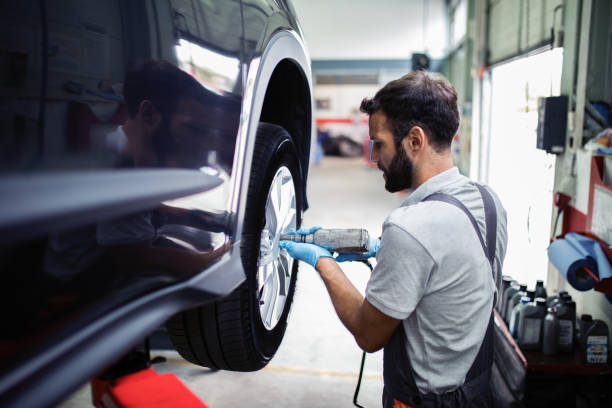Car tyre replacement is an essential aspect of vehicle maintenance that every car owner should prioritize. Timely replacement of worn-out tyres not only ensures safety on the road but also maintains optimal performance, fuel efficiency, and handling. Despite its importance, many drivers tend to overlook this crucial task, putting themselves and others at risk. This article will discuss the significance of timely car tyre replacement and provide insights on how to determine when it’s time for a change.
Why is car tyre replacement crucial?
Car tyres are the only points of contact between your vehicle and the road. They play a vital role in supporting the weight of the car, transmitting acceleration, braking, and cornering forces, and maintaining grip in various driving conditions. Over time, however, tyres wear down due to friction, exposure to weather elements, and other factors. This wear and tear can compromise their performance, leading to reduced traction, longer stopping distances, and poor handling.
Moreover, driving on worn-out tyres increases the risk of accidents, as they may not respond effectively to sudden braking or sharp turns. Additionally, worn tyres are more susceptible to punctures, blowouts, and other forms of damage that can lead to dangerous situations on the road.
Apart from safety concerns, timely car tyre replacement also contributes to better fuel efficiency. Under-inflated or worn-out tyres increase rolling resistance, forcing the engine to work harder and consume more fuel. By replacing your tyres when necessary, you can save money on fuel costs and reduce your vehicle’s environmental impact.
When should you replace your car tyres?
There are several factors to consider when determining the right time for car tyre replacement:
- Tread Depth: The tread depth is a key indicator of a tyre’s remaining life. Most countries have a legal minimum tread depth (usually 1.6mm) to ensure that tyres provide adequate grip in wet conditions. To measure your tyre’s tread depth, you can use a tread depth gauge or the “20-cent test” – insert a 20-cent coin into the tread, and if the outer band is obscured, your tyres still have sufficient tread depth.
- Age: Tyres degrade over time, even if they haven’t been used much. As a general rule, tyres should be replaced every six years, regardless of their appearance or tread depth. This is because the rubber compounds in tyres deteriorate, reducing their grip and increasing the risk of failure.
- Visual Inspection: Regularly inspect your tyres for signs of damage or wear, such as cracks, bulges, or uneven tread wear. These issues may indicate that it’s time for a car tyre replacement.
- Vibration or Noise: Unusual vibrations or excessive road noise while driving can be a sign that your tyres are damaged or misaligned. If you experience these symptoms, have your tyres inspected by a professional to determine if replacement is necessary.
Choosing the right tyres for your vehicle
When it comes to car tyre replacement, selecting the right tyres for your vehicle is crucial. Consider factors such as your driving habits, local climate, and the manufacturer’s recommendations for your specific car model. You can also consult with a tyre specialist to help you make an informed decision based on your needs and budget.
In conclusion, timely car tyre replacement is essential for ensuring safety and optimal performance. By monitoring your tyres’ tread depth, age, and overall condition, you can determine when it’s time for a change. Investing in high-quality tyres that suit your vehicle and driving conditions will not only enhance your driving experience but also contribute to a safer and greener environment.

